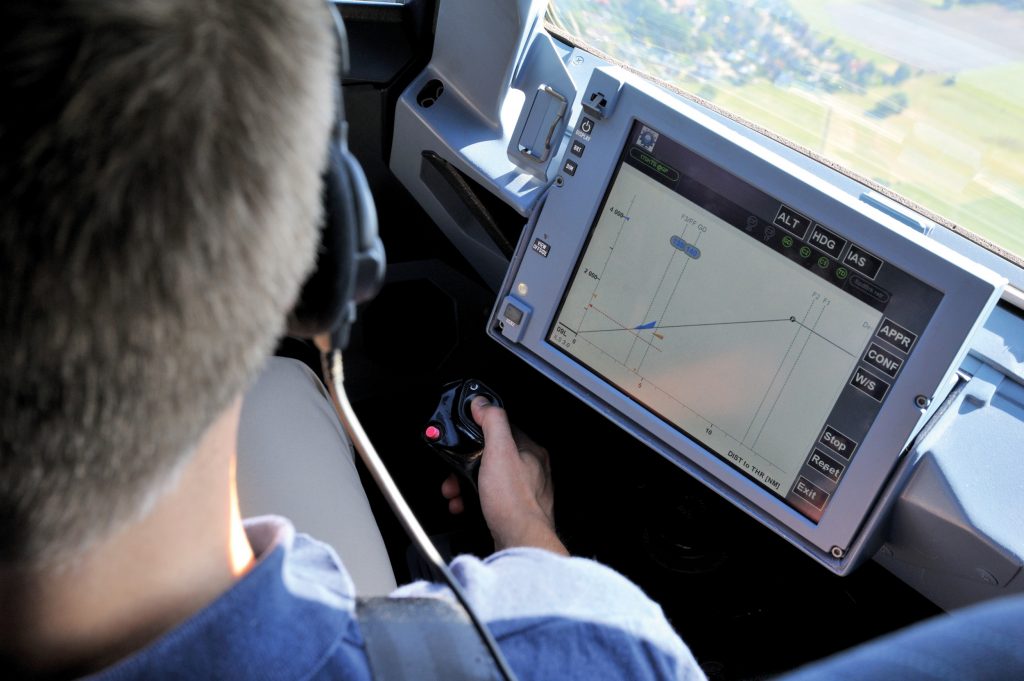Low Noise Augmentation System
Pilot assistance system for noise-optimised, fuel-saving approaches
Landing is one of the most labour-intensive flight phases. In order to help pilots with the complex handling procedures for a low-noise approach, DLR has developed the LNAS (Low Noise Augmentation System) pilot assistance system. This system shows the pilot exactly when to perform which pilot action via an energy-based display in the cockpit. This display on the Electronic Flight Bag (EFB), which can be intuitively and instantly grasped, thanks to its simple representation, is used as the long-term planning basis for the entire approach. The optimal approach profle is divided into different phases. The optimum times for setting the flaps and extending the landing gear are each marked in the approach profle. If the pilot follows these instructions, the approach can be implemented from cruising altitude to the stabilisation height of 1000 feet above ground level with minimum thrust, and therefore the lowest possible noise development and lowest possible fuel consumption.
In 2016, the LNAS pilot assistance system successfully completed initial flight tests during everyday peak-time operation at Frankfurt Airport. A total of 74 approaches were implemented on board the DLR A320 ATRA (Advanced Technology Research Aircraft) in fve test series. The assistance system was of great help to the pilots, especially in diffcult situations, such as strong tailwinds or speed limits from air traffc control. In the next step, the assistance system will be integrated into the aircraft of a major airline at Frankfurt Airport and tested during regular day-to-day operations. The LNAS project is funded by Umwelt- und Nachbarschafthaus (UNH) in Kelsterbach and DLR Technology Marketing.
German Aerospace Center (DLR)
Fethi Abdelmoula · E-Mail: fethi.abdelmoula@dlr.de · DLR.de/en
